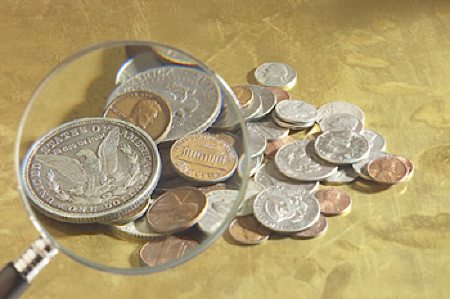Monetary policy these days is complicated, ineffective, and quite possibly immoral. The complexity is inevitable; there is no simple way to ensure that the supply of money and credit is appropriate in a large modern economy. The ineffectiveness is evident: central bankers let that supply grow too fast before the 2008 financial crisis, and have unable to return monetary conditions to normal since then.
The moral lapses may be subtle, but I believe the lack of attention to the common good in the management of interest rates and the monetary system causes three serious problems.
1) Dangerous freedom
Imagine a world in which anyone can use anything as a currency. This perfect monetary freedom would be a disaster. With strangers, I would only be willing to deal in gold, or some other scarce substance that could be carefully measured, because I would have no way of evaluating verbal or written promises to deal fairly. I might be able to trust members of my social group in economic transactions, but only because our monetary freedom was balanced by strong social constraints; they would be punished if they tried to cheat me.
The example is extreme, but it brings out the dangers that come with all monetary freedom. Money is always a token of value, but the value of the token is hard to determine. Invincible ignorance is one issue. No individual can hope to know how much a dollar, or an ounce of gold, should be able to buy at any time, and even monetary authorities struggle to keep track of the supply of both money and the things that money can buy.
But greed is even more dangerous than ignorance, and the freedom to create money – as banks do by lending out deposits, or as anyone can do by issuing promissory notes – is an invitation to greed. The borrower or the issuer is constantly tempted to acquire more spending power than justice would allow.
The current monetary system is far from totally free; central banks such as the U.S. Federal Reserve exercise some control, and they try to use their power judiciously. However, these monetary authorities delegate most of the actual money creation and destruction to relatively unconstrained banks. These institutions have steadily misused their freedom. Greed leads to credit booms, unnecessary bad loans and sudden moves from expansion to contraction. And greed comforts banks and bankers as they extract unconscionably large payments for their services.
2) Money distorted
Central bankers are supposed to keep prices stable. Right now, the monetary system is conspicuously failing to do so. True, fluctuations in the U.S. Consumer Price Index have been fairly modest since 1991; the annual rate of change has varied from a 2 percent decline to a 5 percent increase. However, the prices of houses, oil and most other commodities have moved far more in both directions, often at a dangerously rapid pace. To call that price stability is like a fire department boasting that its record was good because few houses burned down, arbitrarily ignoring numerous factory blazes.
Behind this failure lies a poor moral judgment. The authorities insist that bank balance sheets must be treated as nearly sacrosanct. They refuse to impose losses on lenders, leaving banks to carry on and the economy smothered under a heavy blanket of debt. For the sake of the false good of bank stability, central banks have “abnormalised” the financial system with absurdly low policy interest rates.
3) Bankers in control
The monetary authorities have not only failed both to limit banks’ monetary freedom and to make the financial system sound; they have largely allowed the banks themselves to determine how they should operate. Central banks and financial regulators have neither used their regulatory power to restrict pointless trading and exploitative lending nor taken advantage of their substantial political authority to spread the bad news about the industry’s anti-social behaviour in lending and remuneration.
Bankers have proved very bad judges of how their institutions can best serve the common good. They need lessons in right behaviour, but the Fed’s Ben Bernanke and his peers around the world have been reluctant teachers. Why? The problem is certainly not ignorance; they know, or could know, what should be done. Rather, monetary and financial authorities suffer from a basic misunderstanding of their role.
They want to be nothing more than effective financial technocrats. But that is not enough. They should recognise that their institutions have a serious ethical responsibility.
Central banking can never be made simple. However, the authorities would do a better job if they took morality seriously, by focusing on the helpful limits to freedom and the proper role of the monetary system. Indeed, I believe that monetary policy can only be consistently effective if it is ethical.









